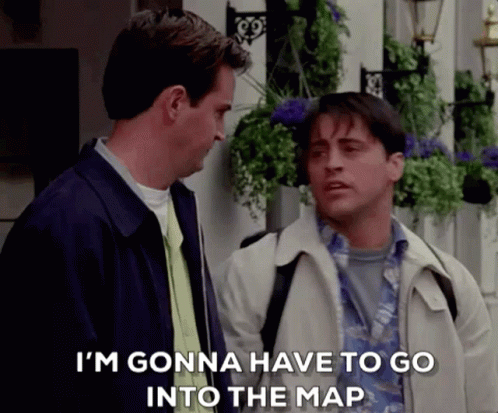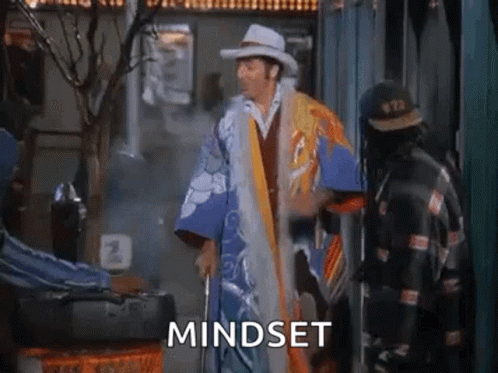It Takes A Village

One thing that anyone who lives in New York City will tell you: it's a lonely place. It's strange how we can be surrounded by people and somehow feel more isolated here than anywhere else. This isn't restricted exclusively to New York; nearly all of my friends who live in a large city say the same thing about their city. This is part of my theory on why city people are mean to each other: we're just trying to evoke some emotion in another human being that isn't indifference!
Basically: we'd rather be cursed out than ignored.
There's this idea of a third place: a place that isn't home or work where people gather, socialize, and make connections. We think of large cities as having many possible third places with many trendy cafes, clubs, churches, and parks. And this is true! All these places exist, and people show up and socialize and get to know each other at these places. But then - why are people still so lonely? There's tons of research to support the claim that people are more lonely in cities. See this, this, this, and this. It's gotten worse since the pandemic, too. See the American Psychological Association and The Harvard Gazette.
I've been deeply thinking about why large cities are difficult places to make deep connections, what it takes to thrive in a large city emotionally, and how to find people that care for you in a place like New York. And my conclusion is that feeling cared for is only possible if we adopt a village mindset organically.
According to a guy I knew in college, the worst part about living in Podunk is that everyone knew what everyone else was up to. Many people move to a big city because they're tired of the small towns and villages they grew up in. I wouldn't wish the nosy neighbors of a small town on my worst enemy. There's nothing worse than people who get all up in your business to start drama and talk smack - unless you're the one talking smack.
Assuming you're not a gossip, village life is a beautiful existence because (ideally) there is a culture of care in a village. This culture of care is certainly possible even in a big city - look at Seinfeld and Friends. Even if we set aside the sitcom magic of abnormally large apartments, the lifestyle presented in both sitcoms is unattainable today for most people. The characters of both shows care for each other in ways we don't get in real life, which is part of their appeal.

Obviously, we can't expect our lives to resemble TV - anyone who does is just asking to be disappointed. But we can try to foster a culture of care in our social circles. As I've reflected on what it means to be cared for, I've found three principles to live by. To have a culture of care, we need:
- Candor
- Competence
- Community
Candor is the gateway to being cared for. We need to be honest about what we're feeling and going through with others, and we need others to be honest with us. If we don't feel like we can be honest with someone, how will we be able to confide in them?
Competence isn't a principle many people think about, but it's a big part of life's progress. If we're going through something difficult, we need to know what to do to get through it. If we're not giving people the strength and resources they need to overcome difficulties, we're not caring for other people. If we're not being educated and empowered by those around us, we're not being cared for.
Community is maybe the most essential principle or possibly the one that's lacking the most. We need people who uplift us when we're feeling down, who check in on us regularly, and who invite us to join even when we don't feel like showing up. Whether it's becoming a better musician, enacting social change, practicing spiritually, or shooting Call of Duty zombies - we go farther together than if we were to go at it alone.
Interestingly, as I was sharing these reflections with some friends, one brought up how analogous this was to the journey of spiritual life. Ultimately, we want to be cared for so we can live a fulfilled life. We need a map that shows us where we are right now - presumably, a life not yet fulfilled - and where we want to go. In my spiritual tradition, this map is laid out in three steps.

First, we must get real about who we are on the deepest levels. This is sambandha, or information on who we are and what fulfills us. Next, we must deeply understand what fulfills us (not just on a theoretical level) and what to do in order to become fulfilled, or abhidheya. The final destination is prayojana, or experiencing fulfillment. In other words, we need to know where we are, where we're going, and how to get there.
Too often, institutions that try to cultivate a community ignore this basic fact about human emotion. Expecting an institution to care for you is to outsource your personal existence, and we've already talked about how crappy impersonalism is. It's like the websites that email you saying, "It's been a while since you've logged in!": sweet but hollow.
No matter where we choose to use these three principles of care, we must also prioritize the personal. This is what I mean when I say "organically." It will feel empty if we're not doing this on an individual level. Being personal is vital, so we need to adopt this village mindset at a grassroots level.

The village mindset doesn't need formal approval from a bureaucracy or any resource separate from your time. Think of a village! A village council would never mandate that people are required to check up on their neighbors or share their thoughts with each other. Ideally, people would do it just because they cared.
Over the past few weeks, I've experienced the emptiness of institutions and the vibrancy of close personal relationships. It's demoralizing to feel uncared for, especially in times of sickness, but you can't help but feel grateful for the people who check-in. Personally, my resolution is to try to embody these principles of care so that I can positively impact people around me and hopefully inspire others to do it, too.
Happy to be here,
-Sid




